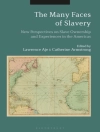Explores how four public intellectuals in North India imagined freedom and Hindi-Hindu nationhood through their writings on caste, Ayurveda, travel, and communism.
What did everyday Hinduism in India look like a hundred years ago? Were its practices more varied and less politically curtailed than now? Hindi Hindu Histories provides illuminating historical accounts of Hindu life through individual actors, autobiographical narratives, and genres in the Hindi print-public culture of early twentieth-century North India. It focuses on four fascinating figures: a successful woman doctor in the Indigenous medical regime, a globe-trotting Hindu ascetic who opposed Gandhi, an anticaste campaigner who spoke for sexual equality, and a Hindu communist who envisioned an egalitarian utopia in the world of labor. These public intellectuals harbored vernacular dreams of freedom and Hindi-Hindu nationhood through their vantage points of caste, Ayurveda, travel, and communism. Opening up a vast and under-explored Hindi archive, this book presents a dynamic spectacle of a plural Hindi-Hindu universe of facets that coexisted, challenged each other, and comprised an idea of Hinduness far more inclusive than anything conceivable in the present moment.
Содержание
Figures
Abbreviations
Note on Translation and Transliteration
Acknowledgements
Introduction: Vernacular Freedoms and Life Narratives
Malleable Circuits of the Vernacular
Hindi and Hindu: Negotiating Language, Literature, and Religion
Self-Writing, Life Histories, and Sexual Embodiments
Utopian Desires of Freedom
Trajectory of Chapters
I: SANTRAM BA (1887–1988)
1. Reading Self, Resisting Caste, Reimagining Marriage
Life History and Caste: Self and Collective Identities
Familial and Social Roots: Caste Discrimination, the Arya Samaj, and Hindi
A History of the JPTM and Anticaste Thought
Transgressive Intimacies: Championing Intercaste Marriages
2. Cast(e)ing and Translating Sex: Vernacular Sexology from the Margins
Vernacular Print Cultures and Sexology in Hindi
Translating Marginality into Authority: Marie Stopes and the Sanskrit Sex Classics
A Heterosexual Ethics: Conjugal Desires, Brahmacharya, and Birth Control
II: YASHODA DEVI (1890–1942)
3. Procreation and Pleasure: Women, Men, and Ayurveda
Popular Health Literature, Biomedicine, and Ayurveda
A Gendered Ayurvedic Authority on Domestic Health
A Moral Sexologist: Reproduction, Intercourse, and Masturbation
4. Kitchen Pharmacy: Culinary Recipes and Home Remedies
The Politics of Food and Health in Colonial UP
A Robust World of Cookbooks and Home Remedies
Food Recipes and Cookbooks
Recipes for Home Remedies
Menu for a Hindu Nation and the Ingredients of Gendered Embodiments
The Educated Housewife as ‘Ghar ka Vaid’
Food for Freedom: The Political Economy of Home Remedies
III: SWAMI SATYADEV PARIVRAJAK (1879–1961)
5. Fantasy, Fitness, Fascism: Masculine Vernacular Histories of Travel
Travel Writing: A Passion for Hindi
Admiring the West: Beauty, Pleasure, and Physicality
A Dialogue between East and West, Slavery, and Freedom
‘Perfect’ Bodies: Masculinity and the Idolisation of Hitler
6. Fashioning a Hindu Political Sanyasi: Autobiography and Sectarian Freedom
Anatomy of a Hindu Ascetic: Sexual Constraint and Masculine Virility
Egoism and Eulogising Self
Conceptualising an Exclusionary Freedom
Segmented Freedom and Nationalism: Hindu Sangathan and Muslims
Gandhi and Godse
Vindicating Assassination
IV: SATYABHAKT (1896–1985)
7. A’Marginal’ History of Vernacular Communism
Historical Antecedents, Hindi and Communism
The First Communist Conference and Satyabhakt’s Marginalisation
Idioms from Below and Communist Writings
8. Hindu Communism: Apocalypse and Utopian Ram Rajya
An Eclectic Hindu Worldview
Indian Traditions and Hinduism in Dialogue with Communism
Apocalyptic Predictions and Future Prophecies
Communism as a Utopian Ram Rajya
Glossary
Bibliography
Index
Об авторе
Charu Gupta is Senior Professor of History at the University of Delhi. Her previous books include The Gender of Caste: Representing Dalits in Print and Gendering Colonial India: Reforms, Print, Caste and Communalism.












